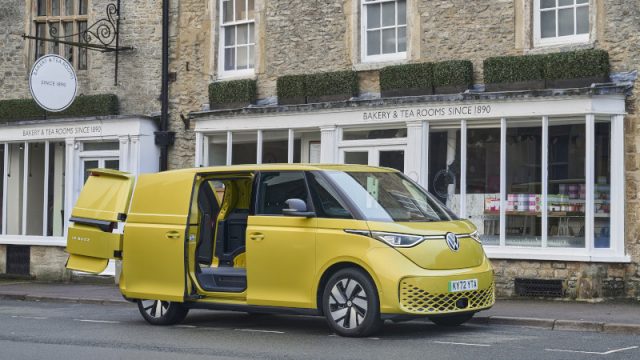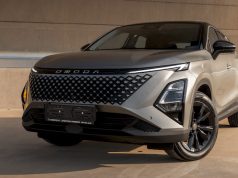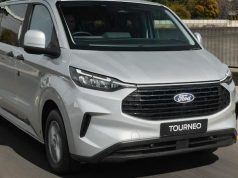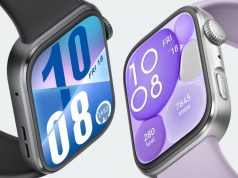Volkswagen South Africa has partnered with courier company DHL Express for a pilot test of four electric ID.Buzz Cargo vans.
The four ID.Buzz Cargo vans will perform their duties around the DHL Express service centres in Johannesburg, Cape Town and Durban, respectively, for six months. DHL will use the vans for last-mile deliveries. The pilot is part of DHL’s target of global zero emissions logistics.
Specifications of the ID.Buzz Cargo
The ID.Buzz Cargo’s lithium-ion battery has a net capacity of 77 kWh (82 kWh gross), and the motor has a maximum power output of 150 kW. The maximum torque is 310 Nm.
In a mix of city and long-distance driving, the ID.Buzz Cargo’s range per charge is 409 km (WLTP). In urban use, this goes up to 570 km, VW claims.
The maximum DC charging power is 170 kW. At this rate, the battery will go from 5 to 80 percent in about 30 minutes. On an 11 kW AC charger, 0 to 100 percent will take 07:30 h.
The ID.Buzz Cargo’s kerb weight is 2 362 kg, and it is 4 712 mm long, almost matching the Opel Combo LWB van’s length of 4 753 mm. The electric VW’s width is 1 985 mm and height 1 932 mm. Its turning circle is 11 m.
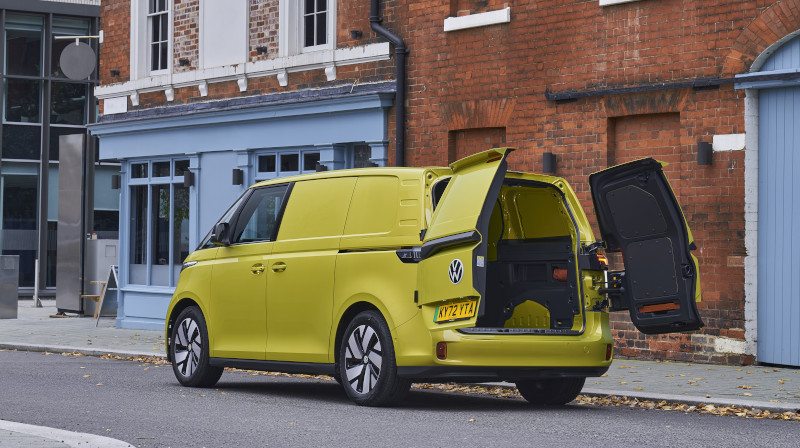
Internal dimensions of the VW ID.Buzz Cargo
- Maximum load length to bulkhead: 2 208 mm (2 232 mm with side-hinged rear doors)
- Maximum load height: 1 279 mm
- Width between the wheel arches: 1 230 mm
- Standard load volume: 3.9 cubic metres (3 900 litres)
Its payload (freight capacity) is a modest 607 kg, but that is more than enough for DHL’s needs.
For perspective, the Volkswagen Caddy Cargo 2.0TDI panel van carries 680 kg and it has a load volume of 3 100 litres. The big Peugeot Boxer 2.2HDi panel van carries 1 400 kg and swallows 10 000 litres. Both run on diesel.
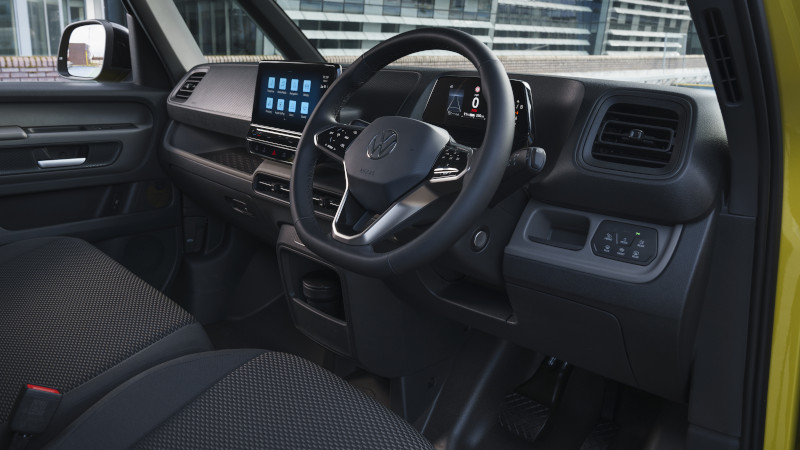
VWSA’s electric strategy
VWSA says the introduction of the ID.Buzz Cargo test fleet is a step towards realising its electric vehicle strategy for South Africa. According to the car maker, the test fleet will help build awareness of its electric vehicles in the country. The pilot will also allow VWSA to collect and study data that is key to the brand’s EV strategy.
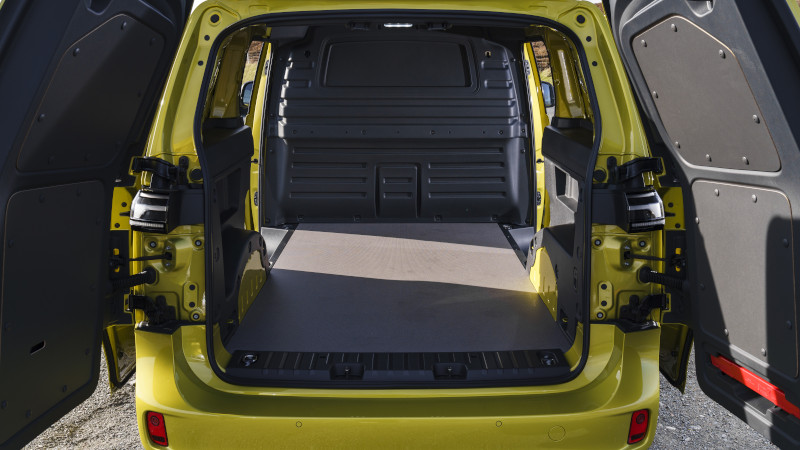
Readiness of local market
Thomas Milz, Director of Sales and Marketing at VWSA, says: “Our partnership with DHL Express on the ID.Buzz Cargo test fleet marks the beginning of Volkswagen’s long-term plan to introduce its electric vehicles in the local market.
“At the end of the pilot test, we hope to have gathered sufficient information on the readiness of the local market for commercial electric vehicles, such as the ID.Buzz Cargo. We are excited to partner with DHL, who shares a similar commitment of zero emissions by 2050 in accordance with the Paris Climate Agreement,” Milz added.
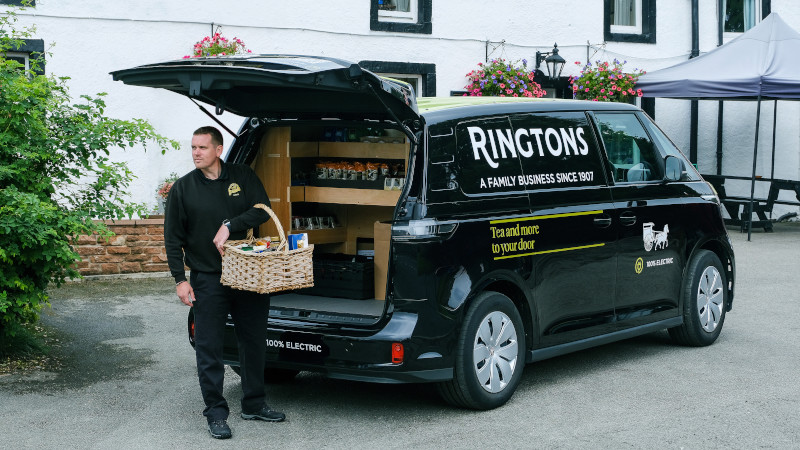
DHL aims for zero
Jed Michaletos, managing director of DHL Express South Africa, says DHL has a responsibility to set an example in the logistics industry and to be a sustainability leader. “DHL Express has committed to achieving zero emission by 2050 through a number of initiatives, one of which is to ensure at least 60 percent of our last-mile delivery fleet is fully electric vehicles by 2030. We are excited to partner with VWSA to pilot their ID. Buzz in South Africa,” Michaletos (pictured below with Milz) added.
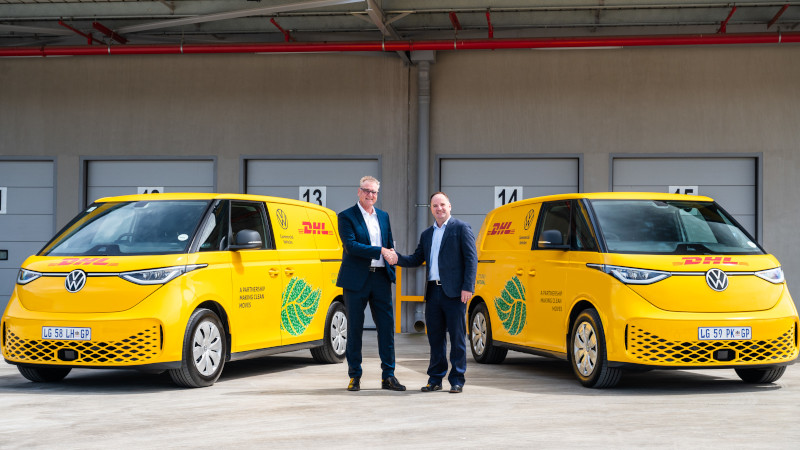
In the United Kingdom (UK), prices for the ID. Buzz Cargo start at £48 541 (R1 139 510 when directly converted). This is before the UK government’s £5 000 ‘green business subsidy’ is deducted.
As for the official local introduction of VW’s electric vehicles, Volkswagen’s ID.4 and ID.Buzz should arrive in the next 9 to 18 months.
Images by VWSA and Dean Smith (Newspress)


